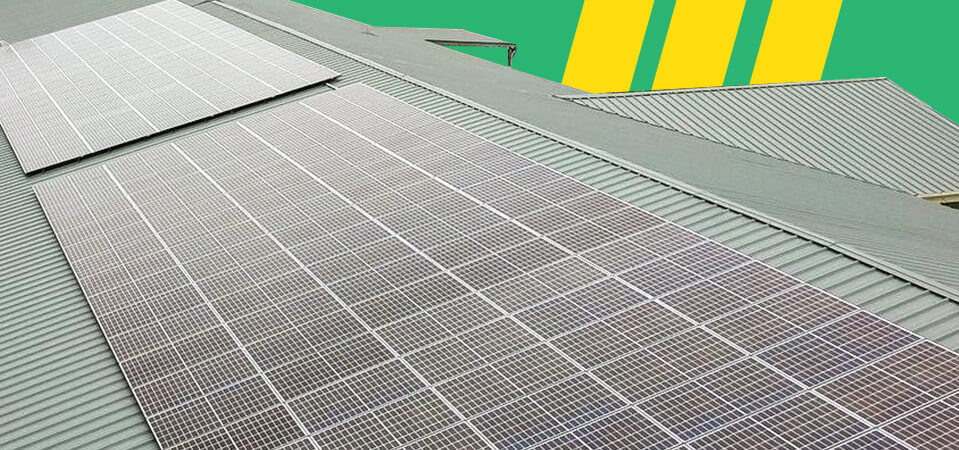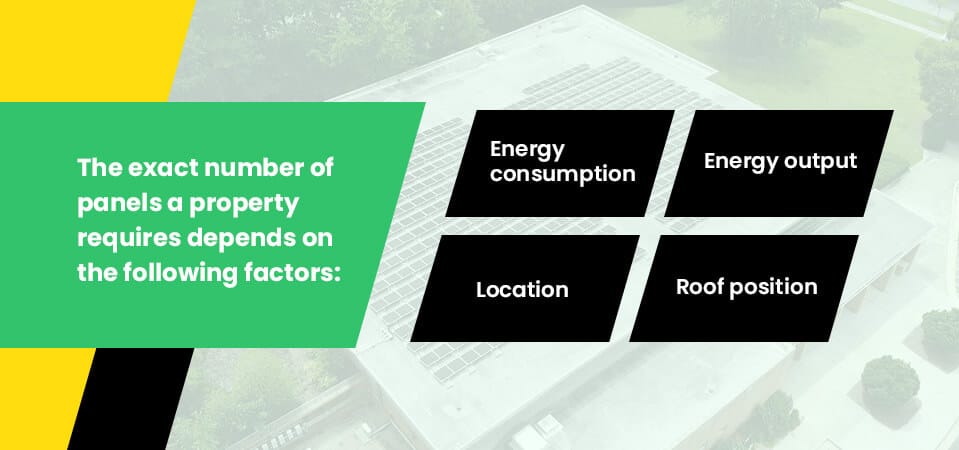
Understanding solar panel dimensions and a solar panel system’s output, quality and efficiency can help you choose the right panels for your property. In general, solar panels are measured by how many cells they contain. This complete guide to solar panel size can help you determine each panel type’s dimensions.
Solar panels are not typically measured in feet. Instead, manufacturers declare a solar panel size based on how many cells a panel contains. Solar cells are small squares that contain the materials responsible for absorbing sunlight and converting it to energy.
Standard solar cells are 6 by 6 inches, and a solar panel’s dimensions depend on how many cells it is made of. The most common solar panel sizes are 60-cell and 72-cell panels.
Standard residential solar energy panels are typically 60-cell panels. These 6-cell-by-10-cell panels are approximately 5.4 by 3.25 feet or 65 by 39 inches. A 60-cell residential solar panel weighs around 40 pounds, but some panels can weigh up to 50 pounds.
A panel’s dimensions and weight varies by brand, so checking a manufacturer’s panel measurements is important to determine the exact size. Panels with a 6 by 10 grid are the most popular option for homeowners, and they offer the following ratings:
In comparison, 72-cell panels are best for commercial applications. Standard commercial solar panels typically measure 6.5 by 3 feet or 80 by 40 inches on a 12-cell by 6-cell grid, and they weigh about 50 pounds.
Like residential panels, a commercial solar panel’s exact size depends on its specific brand. Because 72-cell panels are larger than residential panels and contain more cells, they can produce more energy. They have the following capabilities:
Some solar panels are made with half-cut cells, and they consist of 120 cells or 144 cells. Half-cut cells increase the amount of surface area that can convert sunlight to energy. A 120-half-cut-cell panel measures the same as a standard 60-cell residential panel, and a 144-half-cut-cell panel measures the same as a standard 72-cell commercial panel.
The average home or commercial building requires between 15 and 19 solar panels to make up a full solar panel system and produce adequate energy. The exact number of panels a property requires depends on the following factors:

Because solar panels typically weigh about 50 pounds, a full solar panel system can exceed 700 pounds. While this seems like a significant weight, most residential and commercial property roofs can withstand it. However, considering your roof’s condition is important.
If your home or business building has an old roof, you should schedule a professional inspection. You may need to replace your roof before installing a solar panel system, and an inspector can help you determine if a new roof is necessary.
Professionals can install solar panels on any roof that is in good condition, and they can install panels on the ground if you would prefer to have a solar panel system in your yard.
Beyond solar panel size and your roof’s condition, you should consider the following factors to ensure you choose the right solar panel setup and configuration:
Understanding a solar panel’s size is important, but it is also essential to consider a panel’s quality. A solar energy system’s output and efficiency determine how much power it can deliver to a home or business. Working with an experienced solar energy company can help you choose the best options for your property.
Whether you need residential or commercial solar panels, 8MSolar can help you choose the best panels for your home or business. Our certified installers will evaluate your roof space to determine the ideal solution and install the best solar panels on your property. We install solar energy systems with precise attention to detail for long-lasting results that meet residential and commercial needs.
The 8MSolar team also provides support and repair services to help you prolong your solar energy system’s life span as long as you have it. Contact 8MSolar to learn more about quality solar panel installation and how you can switch to solar power.
This content was originally published here.
